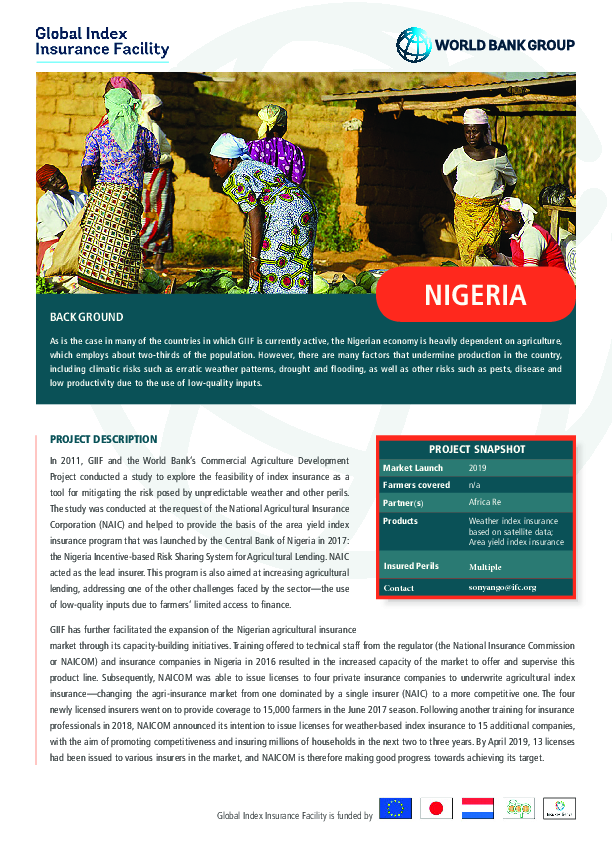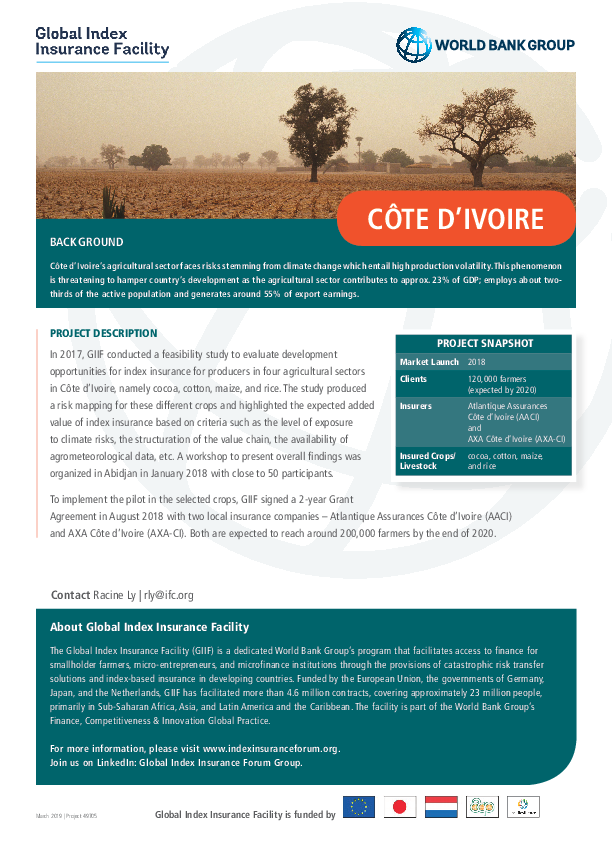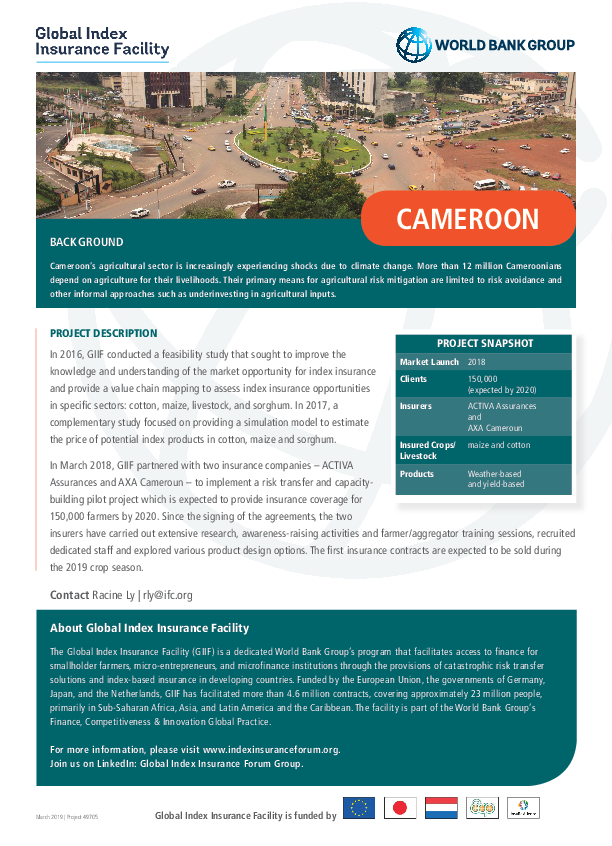> On April 25, 2019, GIIF partner Atlantique Assurances Cote d’Ivoire (AACI) organized the official launch ceremony of its index insurance product – Atlantique Assur’ Coton – designed to provide insurance coverage for cotton farmers in Cote d’Ivoire. The ceremony was marked by the presence of several Government officials, including the Minister of Solidarity and Social Cohesion, Ms. Mariatou Kone (also Mayor of the town of Boundiali), the Prefect of the Bagoué Region, and the Regional Director of Agriculture. Hundreds of participants attended the event, including cotton
Sub-Saharan Africa
Published on:
Country:
> On April 30, 2019, the first Steering Committee meeting for the GIIF project in Cote d’Ivoire took place at Hotel Ibis Plateau, Abidjan. The meeting gathered 15 participants from the Government, insurance sector players and producer associations, to discuss about the setup of the Steering Committee as an enabling tool and guidance framework for achieving the project’s desired targets and outcomes. The meeting was chaired by Mr. Karim Diarassouba, the Insurance Commissioner, who also gave the opening speech. He emphasized the importance of agriculture and index-based

A newly designed Global Index Insurance Facility's Country Profile for Nigeria is available for digital viewing. The document contains an overview of GIIF's project in the country with Partner Africa Re.

A newly designed Global Index Insurance Facility's Country Profile for Côte d'Ivoire is available for digital viewing. The document contains an overview of GIIF's project in the country with Partners Atlantique Assurances Côte d’Ivoire (AACI) and AXA Côte d’Ivoire (AXA-CI). Also available in French.

A newly designed Global Index Insurance Facility's Country Profile for Cameroon is available for digital viewing. The document contains an overview of GIIF's project in the country with Partners ACTIVA Assurances and AXA Cameroun. Also availalbe in French.
Insurance literacy and general awareness on insurance is very low amongst the majority of small scale farmers as well as potential intermediaries in Kenya. This hampers the development of a private-sector driven insurance market. Spreading awareness of insurance and interventions in order to improve insurance literacy among clients have been left so far to the insurance companies and their sales structures. The Insurance Regulatory Authority (IRA) is only sporadically involved. This has obvious cost implications for the private sector. As a consequence, information has mainly been provided to
There is a range of reasons for establishing agricultural and climate risk insurance, including adaptation to climate change, food security, disaster risk management or social protection. Regardless of the motives, however, creating an effective insurance system inevitably cuts across various political spheres. Hence, the first key element is to create a broad consensus amongst policy makers and their commitment to creating an enabling policy environment that fosters the necessary infrastructure. This includes the integration of agricultural and climate insurance into respective national
Agricultural insurance is a business transaction based on the quantification of risk. The basis for all calculations of risk exposure in agriculture is sound data. Lack of data makes insurance companies shy away from agricultural insurance, either because the uncertainty makes it impossible to calculate risk or because the cost required to generate data makes the business model unviable. Generating data and making that data available to insurance companies is a key contribution from the public sector to the development of agricultural insurance. Insurers should have a right to access data that
The success of agricultural insurance depends on the demand by farmers. But while there is clearly a need for agricultural insurance, demand is not high among low-income farmers. A major factor is that the farming community has a low level of awareness about insurance. A key component within any agricultural insurance initiative is to educate farmers about the importance of insurance and how the products help them overcome difficult times. It is equally important to show farmers the limitations of insurance in order to not create unrealistic expectations
The core objective is to enable farmers, cooperatives and other value chain actors to adapt to climate change.
